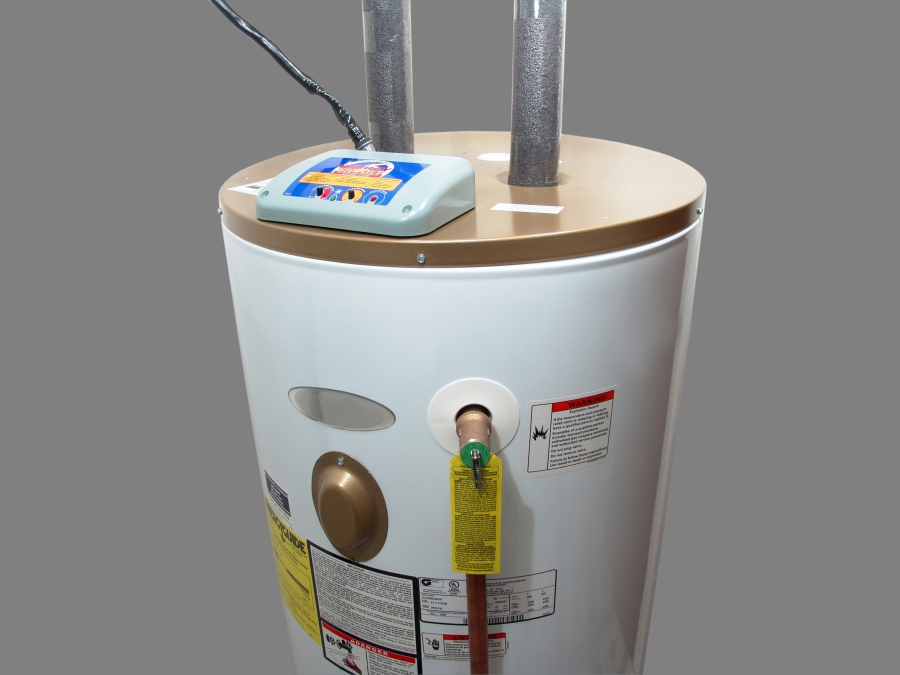Signs You Need a New Hot Water Heater
 Your hot water heater might go overlooked as it hides in the back of your utility closet in your basement—that is, until you start having plumbing problems in your home. All it takes is one cold shower or one leak to make you question the state of your hot water heater—but when is it really time to trade in your old tank for a younger and better model?In this blog, the Chicago HVAC professionals at Aircor will show you signs that it’s time to replace your hot water heater. If you notice any of these things happening in your home, it’s time to call your local water heater replacement team!
Your hot water heater might go overlooked as it hides in the back of your utility closet in your basement—that is, until you start having plumbing problems in your home. All it takes is one cold shower or one leak to make you question the state of your hot water heater—but when is it really time to trade in your old tank for a younger and better model?In this blog, the Chicago HVAC professionals at Aircor will show you signs that it’s time to replace your hot water heater. If you notice any of these things happening in your home, it’s time to call your local water heater replacement team!
Not Enough Hot Water
We all know this sad story: you’re enjoying a delightfully warm shower, shampooing your hair as you bask in the toasty water from your high-pressure showerhead. Then, right as you’re covered head to toe in shampoo, that toasty water turns icy in an instant. You start to panic and weigh your options—do you rinse off as fast as you can as the cold water turns you into a human icicle? Or do you hop out of the shower covered in soap and hope that the warm water comes back sooner rather than later? Either way, you’re going to be cold and uncomfortable. This is a tell-tale sign of a failing hot water heater—something that should be addressed as soon as possible if you hope to have ten consecutive minutes of hot shower water. Call the water heater replacement team so they can switch out your unit with something that has a bit more firepower.
Rusty Water
Showers are supposed to make you clean—but that’s not going to happen if you have rust flakes in your water. Before you start to think that there’s something wrong with the local water supply, realize that rusty water is often a sign of a rust buildup inside of your water heater tank—and rust is often a sign of leaks yet to come.There are ways to prevent rust in your water heater, like by adding a magnesium, aluminum, or zinc rod to your heater tank. However, if your heater is old and rusting at an extreme rate, it’s time to call your water heater maintenance team to see if you should have your tank fixed or replaced.
Rumbling & Popping
Remember when you lived in that tiny studio apartment in the city, and you kept hearing popping or banging sounds coming from downstairs? You probably thought it was your “open minded” neighbors on the third floor banging drumsticks on metal pipes during an improvised jam session, or maybe you thought that really angry guy who lives by himself was hitting a baseball bat against his refrigerator. It was probably neither of the above—in fact, there’s a very good chance that those loud banging noises were coming from the hot water heaters in your building. Over time, water heater tanks will collected sediment that settles in the bottom of the tank. That sediment will eventually stick together and harden, which can cause loud malfunctions on your water heater tank and leave you with less hot water than you desire. Plus, you’ll have to listen to those loud noises all night long!If you start hearing loud noises coming from your tank, leaks are on the way—call your water heater repair maintenance team to see if your tank needs to be switched out.
Leaking
When metal heats up, it expands—and when it cools down again, it contracts. This process happens thousands, if not millions of times during the life of your hot water heater—and after awhile, this constant expanding and contracting can warp the shape of your tank and cause leaks.This isn’t a repair you can put off until later—if your hot water heater tank is leaking, you need to have it replaced as soon as possible. Otherwise, you could end up dealing with some expensive water damage to your home, or a complete lack of hot water when you need it the most. Call your water heater installation team to have a new tank put in so you can enjoy hot water without the risk of home damage.
Old Age
Sometimes, the only problem with your hot water heater is that it’s old—and yes, that is definitely a problem. The average lifespan of a hot water heater is about eight to 12 years—and if your heater gets older than that, you’re at risk for water damage, poor hot water performance, and heftier energy bills.Once your tank hits the eight-year mark, have an inspection performed—this will help determine if your tank can last a few more years, or needs to be replaced. If your tank makes it to 10 years, you definitely need to consider replacing your tank as soon as possible. That’s where Aircor can help. Our experienced and friendly technicians can install, replace, and repair your hot water heater, and give you plenty of advice on how to keep your heater in excellent shape throughout its life. You deserve enough hot water for a 15-minute shower—heck, a 40-minute shower if that’s what you want! Make it happen—call Aircor today.
